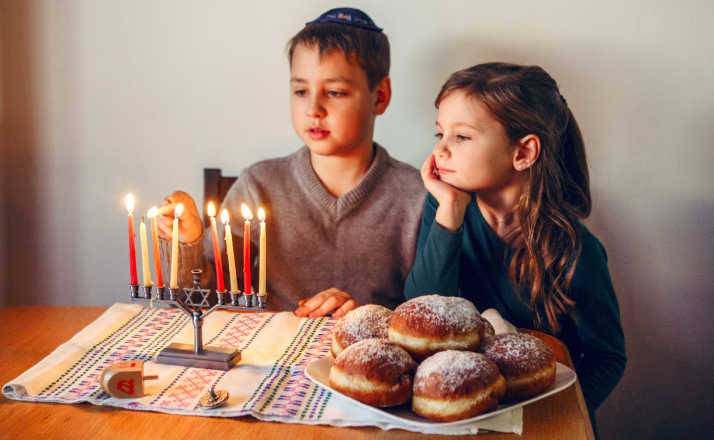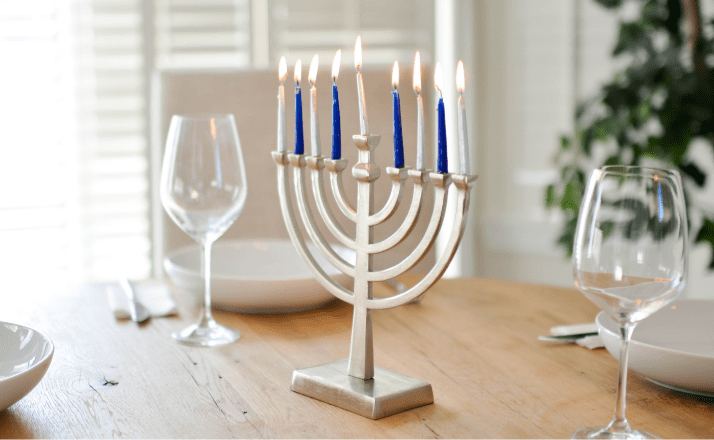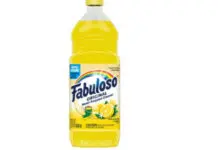The holiday season can be a stressful time for anybody. Not only are our schedules jammed packed with work parties and family obligations, but everything is expensive, and damn if it’s not getting crazy cold outside.
But if you are Jewish and you’re surrounded by all things Christmas, the weeks leading up to December 25th can feel particularly awkward.
In the spirit of making everyone feel included and appreciated, here is a handy list of eight things to keep in mind about the Jewish holiday of Hanukkah.
Hanukah isn’t Jewish Christmas.
The biggest thing to know about Hanukkah is that it isn’t the Jewish answer to Christmas. In fact, Hanukkah is nothing at all like Christmas.
Hanukkah is a celebration that falls on the 25th day of Kislev in the Hebrew calendar and it lasts for eight nights.
But, since the Hebrew calendar follows both a lunar and solar pattern, that means that every year on the Gregorian calendar, the dates of Hanukkah will be different.
This year, Hanukkah began its eight nights of celebration on November 28th.
Hanukkah is a Jewish celebration of the rededication of the Jewish temple in Jerusalem after the Maccabean Revolt against the Seleucid Empire back in the 2nd century BCE.
The miracle of lights refers to there being only enough oil found in the rubble to light the temple menorah for one night, but it miraculously lasted for eight-nights, giving the Jews enough time to make another batch of oil and keep the lights burning.
To celebrate, Jewish families typically eat oil-rich foods like fried potato latkes or donuts called sufganiyot.

It’s ok to not know how to spell Hanukkah when you say Happy Hanukkah.
There are lots of ways to spell Hanukkah and if you go online during Hanukkah you will see many light-hearted arguments flaring over how to spell it properly.
Hanukkah is a transliterated version of the Hebrew word.
You could ask a rabbi, but you might find different rabbis with different answers, making this annual debate kind of fun. Just don’t offer an opinion on which goes on a latke; apple sauce or sour cream because lines will be drawn in the sand.
Also, it’s always ok to wish someone a Happy Hanukkah! Unless you’re not sure, in which case, stick with Happy Holidays.
Both are kind, which is the entire point of the greeting, to begin with.
There are lots of beautiful Jewish holidays that you might not know about, but should.
The holiest time of the year for Jews is Rosh Hashanah and Yom Kippur, which happens in early fall.
But there is also Purim, Pesach, Lag B’Omer, and Shavuot, to name a few, each of which brings beautiful traditions and rituals that you should definitely ask your Jewish friends about.
And don’t forget the weekly Shabbat or Sabbath when observant Jews will tune out the world, light some candles, and enjoy a sacred time of rest.
Not every Jewish family exchanges gifts on Hanukkah.
Since a lot of people assume that Hanukkah is the Jewish Christmas, there is also an assumption that every Jewish family exchanges gifts. But traditionally, gifts are not exchanged during Hanukkah.
Because of assimilation, many American Jewish families have adopted the practice of giving gifts. However, typically, kids will spin dreidels for chocolate gelt, and there are lots of fun oil-rich foods to eat, as well as, of course, lighting the beautiful menorah candles.
If you want to give your Jewish friend a gift, there is nothing wrong with that! Who doesn’t love presents?
But better yet, if you’re thinking about giving a gift, this is a great opportunity to ask your Jewish friends how they like to celebrate Hanukkah and what they feel is appropriate.

It’s totally ok to invite your Jewish friends to celebrate non-Jewish things with you.
Just because your Jewish friends might not celebrate Christmas, doesn’t mean they won’t enjoy being invited to a festive party or gathering.
Perhaps ask first before involving your Jewish friends in a Secret Santa or Christmas pageant. If you’re just throwing a holiday get-together with food and drinks for the purpose of enjoying time with friends though – don’t overthink it.
Equally, it is absolutely ok to accept invitations to celebrate Hanukkah with your Jewish friends.
If you have a Jewish friend who has invited you to a Shabbat dinner or Hanukkah party or any other Jewish-centered celebration, definitely say yes! This is your chance to learn about how wonderful Jewish culture is.
If you’ve never had fresh challah or bit into a sugary, jelly-filled sufganiyot then you are 100% missing out.
You shouldn’t light a menorah in your home — or perform any other Jewish religious practice — if you’re not Jewish.
In keeping with learning about Jewish traditions and culture, it is always ok to ask questions and to participate when invited.
But do not light a menorah in your home if you’re not Jewish. It is disrespectful and offensive to appropriate Jewish rituals if you are not Jewish yourself.
Be careful buying fun Hanukkah merch.
One super fun aspect of the holiday season is all the shopping for decor. But one problem with looking for fun Hanukkah merch is that many retailers don’t understand what Hanukkah is and they end up selling problematic things.
For example, nothing about matzah screams Hanukkah; that’s a Passover thing.
And yet there are zillions of matzah-themed pajamas, pillows, and even Christmas tree ornaments being sold for Hanukkah.
It’s pretty safe to stick with imagery of dreidels, menorahs, and blue and white patterns. But when in doubt, just ask your Jewish friends.
Hanukkah is a lovely time of year filled with lots of celebration and love, but it’s not Christmas and that is ok.






















